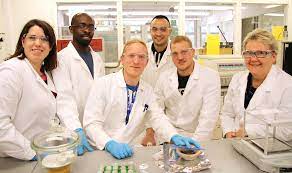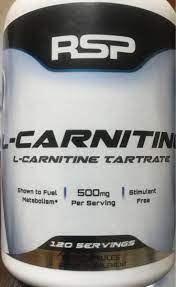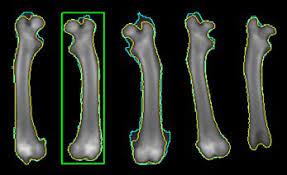L-carnitine Has The Ability To Preserve Mental Sharpness In The Elderly

L-Carnitine has proven to reduce physical and mental fatigue while improving cognition in those over 100 years of age.
The American Journal of Clinical Nutrition has recently released data from clinical research conducted by Italian scientists regarding L-Carnitine as a medical treatment. The study was financed in order to explore the potential benefits of L-Carnitine in elderly patients. The study results indicate that L-Carnitine can significantly improve cognitive ability and reduce fatigue in patients one hundred or more years of age.
How Does the Body Get L-Carnitine?
L-Carnitine is naturally produced in the human body, but like many other vital hormones and proteins, endogenous production of this vital protein declines naturally as a result of the aging process. The human body contains somewhere between twenty and twenty-five grams of this molecule in a healthy individual. L-Carnitine is abundant in cells and organs across the body with very high metabolic requirements.
These organs include the brain, the heart, muscles, immune cells, sperm, and nerves.
Without a sufficient supply of L-Carnitine, the human body cannot sustain itself. Although a large portion of L-Carnitine that human beings utilize comes from the diet, the human body has the ability to synthesize this protein when the body has an adequate amount of the amino acids methionine and lysine.
In addition to the presence of these amino acids, the body also needs the nutrients iron, Vitamin B3, Vitamin B6, and Vitamin C in order to create this hormone internally. Without proper nutrition, the human body is unable to produce its own store of L-Carnitine, and health will deteriorate as a result.
L-Carnitine is Necessary for Healthy Metabolism
L-Carnitine is vitally important in maintaining a healthy level of cellular metabolism, and if the body is deficient in this vital hormone, then the body's protective physiological processes slow down as well. Like Human Growth Hormone Deficiency, L-Carnitine Deficiency plays a major role in an increased rate of aging and decreased rehabilitative ability. L-Carnitine Deficiency is widely believed to be a primary factor that induces severe fatigue in older patients. There is great hope that L-Carnitine can be used to amplify low-energy levels in geriatric patients.
L-Carnitine Study Parameters
This particular study featured 46 women and 24 men ranging in age from 100 to 106. All of these patients were chosen based on their reports of experiencing significant exhaustion after even the most minor levels of physical activity. This was a tightly controlled study in which half of the patients were randomly selected to ingest two grams of L-Carnitine daily while the control group unknowingly took a placebo. The 70 patients were monitored over the course of 6 months while taking daily doses of either L-Carnitine or placebo.
Every patient underwent a routine physical before and after the six-month treatment period in which their muscle mass, total body fat, and BMI were recorded. Once each month, the researchers drew blood samples in order to monitor L-Carnitine and Cholesterol levels as well as a number of other factors. In lieu of a more analytical method, patients were asked to self-report physical and mental fatigue and exhaustion levels.
The Similarity of Fatigue and Pain
Fatigue is similar to pain in that the experience of these two negative phenomena is completely relative to the perception of the patient and not to any testable analytic. Before and after the monitoring period, each patient was evaluated for overall cognitive function. Although fatigue is impossible to measure accurately, cognitive testing can scientifically prove that self-assessed fatigue limits overall cognitive ability. The physical effects of fatigue were monitored via a 6-minute session of light cardiovascular activity.
L-Carnitine Study Results
Out of the seventy patients who participated in this study, eight patients died before the six-month testing period was complete. Three patients in the experimental group did not survive the testing period, while five patients in the placebo group died. This left 62 patients who provided a full set of usable  data. Over the course of six months of therapy, the experimental group did indeed experience boosted levels of L-Carnitine in the bloodstream. As a result of this increase in L-Carnitine Levels, the patients experienced a number of positive benefits, including:
data. Over the course of six months of therapy, the experimental group did indeed experience boosted levels of L-Carnitine in the bloodstream. As a result of this increase in L-Carnitine Levels, the patients experienced a number of positive benefits, including:
Measurable decrease in mental and physical fatigue
Reduction in severity of mental and physical fatigue
Increases in muscle mass
Reduced levels of fat
Decreased cholesterol levels
Improved performance on cognitive tests
Increased ability to withstand light physical activity
How does L-Carnitine Benefit the Body?
It is well known in the medical community that L-Carnitine is vital for the oxidation of long-chain fatty acids by cellular mitochondria. It is believed that increased L-Carnitine levels improve the ability of the mitochondria to metabolize fatty acids, thus causing a number of physiological benefits in the experimental participants, manifested both physically and cognitively.
This evidence also suggests that increased levels of L-Carnitine help the body utilize glucose more efficiently, allowing the body to sustain activity for longer. In addition, L-Carnitine preserves muscular glycogen, the immediate energy source for the muscles.
All of this combines to preserve the rate at which ATP is efficiently expended in order to support physical activity. In patients with L-Carnitine Deficiency, ATP stores are burned up more quickly, causing these individuals to experience fatigue and exhaustion more quickly, inhibiting their ability to engage in cardiovascular activity dependent on the severity of the deficiency.
Elderly Patients Desperately Need L-Carnitine
By the age of 100, Endogenous L-Carnitine levels are incredibly low, allowing researchers to vividly see the potential benefits of L-Carnitine supplementation for patients with lesser deficiency. The researchers who conducted this study concluded that L-Carnitine supplementation can reduce body fat, increase muscle mass, and improve physical and cognitive activity capacity by reducing the effects and severity of exhaustion and fatigue.
L-Carnitine Supplementation a Smart Decision
L-Carnitine is a vital part of a healthy diet and helps maximize physical and mental health. Although our body can naturally produce a certain level of L-Carnitine, it is necessary to eat foods or take supplements containing L-Carnitine to maximize the hormone's benefits. L-Carnitine is a legal supplement that can be purchased at nearly all nutrition stores.
A normal and healthy dose of L-Carnitine is generally between 2 and 4 grams of L-Carnitine per day, which is around the dose provided to the patients in the study discussed above.
L-Carnitine Important for Individuals of All Ages
Although the above study is related to the use of L-Carnitine in geriatric patients, it displays the importance of maintaining a healthy level of L-Carnitine throughout one's life. Healthy levels of L-Carnitine are necessary to maximize the benefits of cardiovascular training because it helps the body maintain the necessary level of energy to engage in strenuous exercise.
the necessary level of energy to engage in strenuous exercise.
The hypothesis of the researchers in the above study that L-Carnitine is necessary to sustain ATP levels optimally over time shows that fatigue and exhaustion are physical disorders related to the energy available to the body at any moment in time. It is not just a matter of the brain or the muscles' ability to withstand pressure, but fatigue is directly related to the rate at which the body uses up internal energy sources such as ATP.
L-Carnitine increases the Benefits of HGH.
Both L-Carnitine and Human Growth Hormone are intricately related to the metabolic processes which enhance exercise ability and increase our ability to withstand physical exertion. L-Carnitine helps the body use every ounce of energy with maximum efficiency, whereas Human Growth Hormone releases internal stores of energy which provide the muscles of the body with additional energy to further enhance exercise capacity.
L-Carnitine and Human Growth Hormone play unique yet inextricably linked roles in physical performance, and both HGH Deficiency and L-Carnitine Deficiency prevent individuals from achieving optimal energy levels and sapping men and women all over the world of their vitality.
Human Growth Hormone and L-Carnitine are fantastic when taken together. L-Carnitine is a vital protein that the body absolutely has to have to survive, but it is in no way a substitute for Human Growth Hormone. HGH is a vital hormone that promotes metabolism throughout the body, whereas L-Carnitine maximizes available energy's effectiveness. Regarding physical performance and energy, think of HGH as an energy excavator and L-Carnitine as an efficiency agent.
L-Carnitine Supplementation
What Forms of L-Carnitine Supplements are Effective?
L-Carnitine is available in several forms, and, for the most part, the protein remains intact through digestion. L-Carnitine can be commonly found as a liquid, hard tablet, or powder capsule. There are a number of options available, and you are free to choose which works best for you. For patients who are significantly deficient in L-Carnitine, it is possible to receive an L-Carnitine injection from a physician via prescription.
are significantly deficient in L-Carnitine, it is possible to receive an L-Carnitine injection from a physician via prescription.
Do Not Take Too Much L-Carnitine
We do not suggest taking a dose of L-Carnitine greater than 4 milligrams per day without the approval of a qualified physician because there are certain risks involved with L-Carnitine overdose. L-Carnitine overdose can cause stomach problems such as cramping, nausea, vomiting, and diarrhea. Overdose of L-Carnitine can also lead to elevated levels of urea in the blood, which can hinder exercise performance and cause muscular weakness.
Natural Sources of L-Carnitine
In addition to taking L-Carnitine in supplemental form, there are also many great sources of vital protein that you can find in your everyday diet. Red meats are a significant source of L-Carnitine, although they should be eaten sparingly in any diet. Milk products are a great source of L-Carnitine for individuals who are not lactose-intolerant. L-Carnitine deficiency is a fairly common occurrence among vegans and vegetarians for this reason.
For individuals who desire to limit red meat consumption and are lactose intolerant, many fruits and vegetables provide L-Carnitine, including bananas, apricots, kale, parsley, okra, mustard greens, and garlic, collard greens, Brussels sprouts, broccoli, and asparagus. Seeds and nuts also contain a healthy dose of L-Carnitine as well. Whole wheat, rice bran, oatmeal, corn, and rye contain L-Carnitine, but remember to avoid processed rice and grains when possible.
L-Carnitine as a Medical Treatment
There are a number of medical conditions for which L-Carnitine supplements and injections are recommended and/or prescribed. Some individuals have a genetic disorder that limits their ability to process their own L-Carnitine. Certain medical treatments such as hemodialysis can lead to L-Carnitine Deficiency as well. L-Carnitine supplements are important when starting a diet because making a significant dietary transition can often lead to insufficient ingestion of certain nutrients such as L-Carnitine.
L-Carnitine is also a common supplement used during the treatment of cardiovascular complications. L-Carnitine has been shown to alleviate cholesterol levels and decrease the risk of heart attack, heart failure, and stroke. The protein has also been shown to relieve certain issues arising from poor circulation in the extremities.
L-Carnitine Reverses Muscle Atrophy
L-Carnitine supplementation is often recommended for AIDS patients in order to alleviate the symptoms of muscle wasting associated with the immune virus. L-Carnitine helps prevent the human body from feeding on its own musculature, which helps AIDS patients and has also been used to preserve health in patients in recovery from anorexia as well. For men who are having fertility trouble, L-Carnitine is often an early suggestion for encouraging procreative ability.
For patients too young to suffer from HGH Hormone Deficiency, L-Carnitine is a useful method of safely and legally optimizing endurance and physical performance. If you suffer from HGH Hormone Deficiency or Testosterone Deficiency, L-Carnitine is one of the many nutrients you will need to maximize the benefits of your treatment.
L-Carnitine and Bone Mass
As we age, L-Carnitine levels in the cells start to decline. This negatively impacts the metabolism of fatty tissues throughout the body. The bones are significantly affected by this metabolic decline.
The bones are slowly but constantly undergoing a process known as remodeling, and organs known as osteoblasts require adequate metabolic activity to perform their function of restructuring bone. Without sufficient osteoblast activity, the bones are slowly leeched off their calcium, and an overall reduction in bone capacity will eventually result in osteoporosis.
to perform their function of restructuring bone. Without sufficient osteoblast activity, the bones are slowly leeched off their calcium, and an overall reduction in bone capacity will eventually result in osteoporosis.
L-Carnitine Provides Antioxidant Benefits
L-Carnitine is one of a large group of nutrients and supplements known as antioxidants. Antioxidants protect the body at a cellular level from elements known as free radicals. Free radicals are rogue atoms and molecules that lack an electric charge and can damage human cellular bodies. The purpose of antioxidants is to cancel out the potential damage caused by free radicals.
When individuals lack sufficient antioxidants, these rogue elements and molecules take control and break down organs at a cellular level. L-Carnitine Deficiency is common in geriatric patients, and, as a result, these patients are more at risk of cellular damage as a result.
Pharmaceutical Uses for L-Carnitine
L-Carnitine and the Heart
Clinical research has proven that L-Carnitine can be beneficial for patients that have suffered from angina. L-Carnitine supplementation reduces the need for certain medications, increases energy, and reduces fatigue while helping prevent further occurrences of chest pain.
Some clinical studies even present evidence that L-Carnitine can help those that have suffered a heart attack from experiencing another. L-Carnitine can also prevent angina after a heart attack and can preserve normal heart rhythm, which may prevent the need for a pacemaker. However, there is no definitive evidence regarding these final claims.
L-Carnitine and Kidney Disease
The kidneys are one of the primary organs which create endogenous L-Carnitine. Patients who suffer from kidney disease almost universally suffer from issues with L-Carnitine production. Patients who undergo dialysis due to kidney disease are often prescribed L-Carnitine to maintain energy levels and reduce symptoms of fatigue related to kidney disease and its treatment.
L-Carnitine and Male Fertility
L-Carnitine Deficiency can lead to fertility issues in males. Sperm cells are one of the kinds of cells which most rely on L-Carnitine in order to function optimally. With insufficient L-Carnitine, sperm quality declines, and the sperm are often not active enough to ensure insemination. L-Carnitine has also been proven beneficial in treating a disorder known as varicocele, which is a vascular disorder that disrupts the functional ability of the testicles. Evidence even suggests that L-Carnitine supplementation outperforms surgery in treating this disorder.
L-Carnitine and Weight Loss
Those who are interested in weight loss would be smart to use L-Carnitine as a dietary supplement. L-Carnitine is often labeled as a weight-loss treatment, but this is not quite an accurate assessment of what L-Carnitine can achieve. There is evidence that L-Carnitine can improve BMI by decreasing adipose fat while boosting muscle mass, but this may not result in overall weight loss. L-Carnitine, in this respect, can be understood more as a mechanism for body sculpting than for the encouragement of weight loss.
For patients with Human Growth Hormone Deficiency, Bio-Identical HGH injections vastly outperform L-Carnitine in the treatment of obesity, although L-Carnitine does produce many positive benefits regarding cardiovascular and metabolic health. It is important to think of L-Carnitine as a supplement that can increase the effectiveness of various forms of Hormone Replacement Therapy rather than a fully-fledged treatment option in and of itself.
L-Carnitine and Muscle Developmental
Clinical research has proven that L-Carnitine significantly improves muscle development and function. One study shows that L-Carnitine supplementation can even help healthy individuals increase muscle mass and reduce fatigue associated with exercise. Of course, until research suggests otherwise, it is important to limit L-Carnitine consumption to no more than 4 grams per day. As the body loses the ability to produce its own  L-Carnitine with age, the benefits of L-Carnitine supplementation continue to become more and more pronounced.
L-Carnitine with age, the benefits of L-Carnitine supplementation continue to become more and more pronounced.
L-Carnitine Can Benefit Patients with Mild to Moderate Asthmatics
Studies are beginning to show that some forms of asthma may be the result of L-Carnitine Deficiency in youth. In comparison to healthy children, kids with mild to moderate chronic asthma were shown to have comparatively lower levels of L-Carnitine. L-Carnitine has been shown to be a useful and successful treatment option for a significant portion of children with this form of asthma. L-Carnitine is thought to improve metabolism in cells within the lungs which helps the organ to absorb oxygen more efficiently, often reducing and eliminating the need for an inhaler.
L-Carnitine and Hyperthyroidism
Hyperthyroidism is the result of an overactive thyroid gland. Symptoms of hyperthyroidism include fatigue, insomnia, muscle atrophy, weight loss, and anxiety. There is clinical proof that hyperthyroidism pulls L-Carnitine from the body and impoverishes cells throughout the body from healthy L-Carnitine levels. There is significant evidence that L-Carnitine supplementation can alleviate and reverse many symptoms of Hyperthyroidism. L-Carnitine is secondary to hyperthyroidism and does not prevent hyperthyroidism but can alleviate symptoms when they occur.
L-Carnitine is an Important Part of any Health Regimen.
L-Carnitine is a potent metabolism-enhancing protein that can provide significant benefits throughout the body. Many Anti-Aging Hormone Panels include testing for L-Carnitine Deficiency. This test will help your physician optimize your Hormone Replacement Therapy Regimen, providing you with the greatest possible benefits.
Healthy levels of L-Carnitine help Human Growth Hormone HRT patients by optimizing physiological and cellular metabolism. L-Carnitine also helps patients undergoing Testosterone Hormone Replacement Therapy by providing additional energy for muscle development and helping to preserve or even restore fertility in Testosterone Deficient patients.
Even if you do not choose to utilize Hormone Replacement Therapy, we encourage you to take supplemental L-Carnitine in order to help improve your physiological profile.
- 0001 What Is Andropause And How Can I Prepare For It? [Last Updated On: October 2nd, 2025] [Originally Added On: February 20th, 2021]
- 0002 Theories On Aging [Last Updated On: October 4th, 2025] [Originally Added On: February 21st, 2021]
- 0003 Sleep And Hgh Go Hand In Hand [Last Updated On: September 30th, 2025] [Originally Added On: February 22nd, 2021]
- 0004 Knowing Two Languages Can Postpone Dementia [Last Updated On: September 28th, 2025] [Originally Added On: February 24th, 2021]
- 0005 What Are The Functions Of Human Growth Hormone? [Last Updated On: September 26th, 2025] [Originally Added On: February 25th, 2021]
- 0006 Hgh Sleep: Keep Young And Healthy With Deep Sleep [Last Updated On: September 25th, 2025] [Originally Added On: February 26th, 2021]
- 0007 Why Does Human Growth Hormone Production Drop As We Age? [Last Updated On: September 24th, 2025] [Originally Added On: February 27th, 2021]
- 0008 Growing Life Spans And Life Expectancy [Last Updated On: September 23rd, 2025] [Originally Added On: February 28th, 2021]
- 0009 Flax Seed Oil: Longevity And Anti-aging Medicine [Last Updated On: September 22nd, 2025] [Originally Added On: March 1st, 2021]
- 0010 Exercise To Increase Your Hgh Production! [Last Updated On: February 19th, 2025] [Originally Added On: March 2nd, 2021]
- 0011 Eighteen Suggestions For A Longer And Happier Life [Last Updated On: September 21st, 2025] [Originally Added On: March 3rd, 2021]
- 0012 Chemical Pollution Is Destroying Masculinity [Last Updated On: February 19th, 2025] [Originally Added On: March 4th, 2021]
- 0013 Bio-identical Hgh Hormone Replacement Therapy [Last Updated On: September 20th, 2025] [Originally Added On: March 5th, 2021]
- 0014 The Longevity Film: A review [Last Updated On: April 7th, 2025] [Originally Added On: October 25th, 2022]
- 0015 Blue Zone Cultures and Their Connection to Longevity [Last Updated On: February 20th, 2025] [Originally Added On: October 27th, 2022]
- 0016 The Prevalence and Impact of Endocrine Disrupting Chemicals [Last Updated On: February 11th, 2025] [Originally Added On: February 11th, 2025]
- 0017 Understanding Exercise's Role in Slowing Down Aging [Last Updated On: February 10th, 2025] [Originally Added On: February 12th, 2025]
- 0018 Understanding the Concept of Blue Zones [Last Updated On: February 16th, 2025] [Originally Added On: February 16th, 2025]
Word Count: 2892






